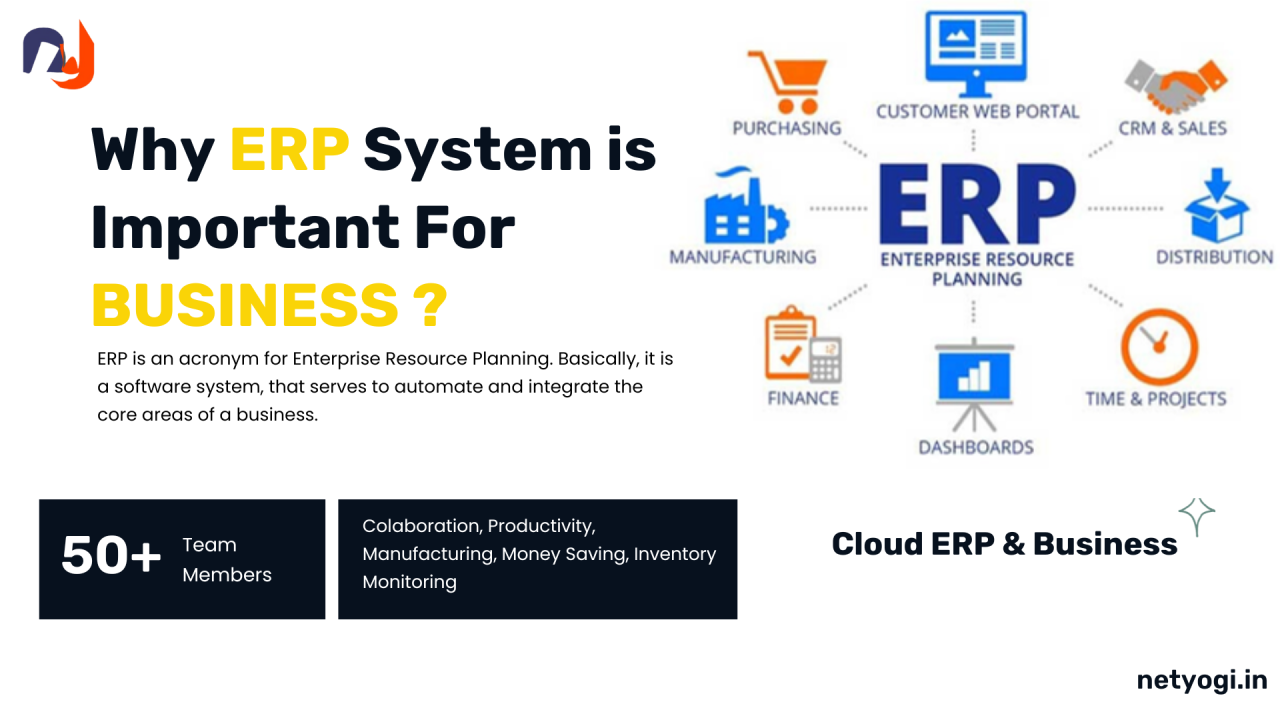In today’s fast-paced business environment, growth and scalability are crucial for long-term success. To achieve these goals, companies must streamline their operations, enhance efficiency, and adapt quickly to changing market conditions. Enterprise Resource Planning (ERP) software plays a pivotal role in supporting these objectives. Here’s why ERP is essential for business growth and scalability:
1. Centralized Data Management
ERP systems centralize business data into a single platform, providing a unified view of operations across departments. This integration eliminates data silos, reduces duplication, and ensures that all stakeholders have access to accurate and up-to-date information. With centralized data management, businesses can make informed decisions faster, respond to market changes more effectively, and support growth initiatives with reliable insights.
2. Improved Operational Efficiency
One of the key benefits of ERP software is its ability to automate and streamline business processes. By automating routine tasks such as order processing, inventory management, and financial reporting, ERP systems reduce manual effort and minimize errors. This efficiency not only enhances productivity but also allows employees to focus on more strategic tasks that drive business growth.
3. Scalable Solutions
As businesses grow, their operational complexity often increases. ERP systems are designed to scale with your business, accommodating additional users, transactions, and data volumes without compromising performance. This scalability ensures that your ERP solution can support your growth trajectory, whether you’re expanding into new markets, increasing production capacity, or launching new products.
4. Enhanced Reporting and Analytics
ERP software provides advanced reporting and analytics tools that help businesses gain deeper insights into their operations. With real-time data and customizable dashboards, companies can track key performance indicators (KPIs), identify trends, and make data-driven decisions. This capability is crucial for strategic planning and optimizing business processes to support growth.
5. Improved Customer Experience
ERP systems enhance customer experience by providing a 360-degree view of customer interactions and order history. This visibility enables businesses to deliver personalized services, improve response times, and manage customer expectations more effectively. A positive customer experience contributes to customer loyalty and can drive business growth through repeat business and referrals.
6. Streamlined Supply Chain Management
Effective supply chain management is essential for growth and scalability. ERP systems integrate supply chain functions such as procurement, inventory management, and logistics, allowing businesses to optimize their supply chain operations. By improving visibility and coordination across the supply chain, ERP systems help reduce costs, minimize stockouts, and improve delivery performance.
7. Compliance and Risk Management
Growing businesses must navigate an increasingly complex regulatory environment. ERP software helps ensure compliance with industry standards and regulations by providing robust audit trails, automated compliance checks, and documentation management. Additionally, ERP systems assist in risk management by identifying potential issues and providing tools to mitigate risks.
8. Enhanced Collaboration
ERP systems facilitate collaboration by providing a single platform where employees from different departments can access and share information. This collaborative environment fosters better communication, alignment, and coordination, which are essential for driving business growth and executing strategic initiatives.
9. Flexibility and Customization
Modern ERP systems offer flexibility and customization options to meet the unique needs of different businesses. Whether you need to tailor the software to specific industry requirements or integrate with other systems, ERP solutions can be adapted to fit your business model. This adaptability ensures that the ERP system continues to support your growth and scalability objectives.
10. Strategic Agility
The ability to adapt quickly to market changes and emerging opportunities is crucial for business growth. ERP systems provide the tools and insights needed to respond to changing conditions, implement new strategies, and capitalize on growth opportunities. By enabling agile decision-making and operational flexibility, ERP software helps businesses stay competitive and thrive in a dynamic market.
Conclusion
ERP software is a vital tool for businesses seeking growth and scalability. By centralizing data, improving operational efficiency, and providing advanced reporting and analytics, ERP systems support strategic decision-making and operational excellence. With its scalability, flexibility, and ability to enhance various aspects of business operations, ERP software is essential for companies looking to achieve sustainable growth and adapt to evolving market demands. Investing in the right ERP solution can pave the way for long-term success and help businesses reach their full potential.
